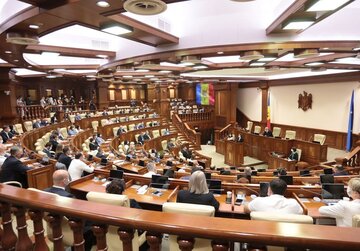
Parliament of Moldovan adoptes in the second reading the draft of the new Customs Code.
In the course of the second reading, the document was approved taking into account the government's conclusion based on broad public consultations. The document must be approved by the parliament in the third reading. According to the amendments prepared for the second reading, by the end of 2022, duty-free located on the land borders of Moldova will lose the status of duty-free shops. The new Customs Code is in line with EU legislation, which provides for the possibility of opening duty-free shops only at airports, ports, on board aircraft and ships. Some duty-free shops in the border area will cease operations after the license expires (December 22, 2022). The possibility of placing goods in Moldova’s free economic zones (FEZ) in the active processing mode will also be excluded. This is due to the fact that the concept of special customs regimes is completely changed in the new Customs Code, and the FEZ regime will be included in the customs regime for special warehousing. The bill clarifies some concepts ("customs supervision", "customs decision", "declaration of origin", "exporter", "notice of re-export", etc.). The draft specifies that the exchange rate used for customs purposes is the exchange rate established by the NBM at the time the customs debt arises. The conditions for the destruction of goods that violate intellectual property rights are being simplified, and an increase from 1 year to 3 years is supported, during which the copyright holder is obliged to destroy goods that violate intellectual property rights. In order to improve the provisions of the draft law, there were proposed amendments aimed at ensuring equal conditions and clarifying customs regulations: reducing the maximum amount of the fine in case of non-declaration of goods - to 25 thousand lei instead of 40 thousand lei, clarification of the conceptual apparatus under the article "Compliance with the law" etc. The draft of the new Customs Code is intended to unify, modernize and optimize customs legislation, as well as bring it in line with the obligations assumed by our country under the Association Agreement with the European Union. The purpose of the document is to improve the quality of services provided by the Customs Service to economic agents, increase the level of data security, reduce costs and delays caused by declaring goods, reduce the risk of fraud and corruption, etc. The new Customs Code should systematize the customs legislation and combine several laws related to the customs area. The draft of the new Customs Code has been developed over the course of 3 years. It is expected to take effect in January 1, 2023. // 16.08.2021 - InfoMarket.







